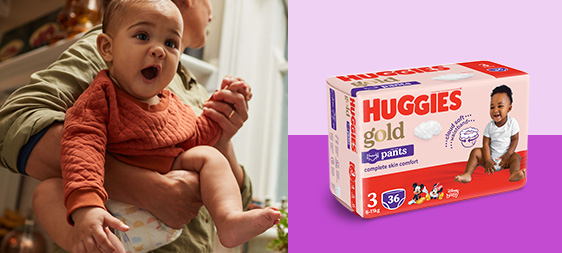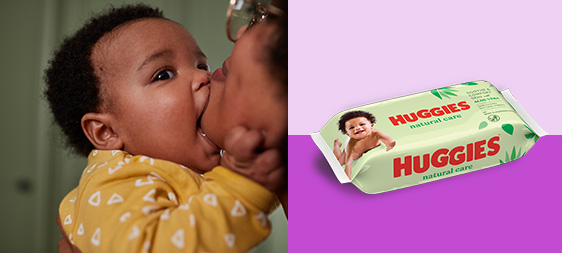Your 25-month-old will chatter away and seek to engage your attention whenever they can. Sure, there’ll be short periods of time when something fascinating captures their attention, but they will be so bonded to you emotionally that they’ll need to know you are reasonably close. Although this may, feel a little stifling at times, your toddler’s independence will only increase as they get older. For now, give them the attention they need and support their exploration away from your side.
Your toddler is learning how to be social and will identify with other children and adults. They will still be wary of strangers and need to warm up to people who are unfamiliar, but once they feel secure there’s no holding back.
Your toddler will become everyone’s new best friend, including their own. They’ll also chat away during play and experiment with a range of different voices and sounds. Don’t expect all of it to be intelligible though. At 25 months there’s still some way to go with speech and language development.
Growth and development
If you didn’t do this last month, then measure your toddler’s height and double it. This will give you an idea of what their adult height is likely to be. There will still not be much weight gain or obvious growth at this stage but over time, your toddler will grow and mature. Their genes, environment and nutrition will all impact on their size. You’ll find a wide variation of sizes already in your toddler’s peer group, each with their own individual body proportions.
It may be time for a haircut this month, which for some toddlers is a harrowing experience. On some primitive level they can have problems dealing with the process of seeing their hair cut and lying on the floor. This often ends up being a stressful situation for everyone concerned. All the explanations in the world may not help which means cutting their hair while they are sleeping is the only option. Distraction when they are awake can be partially effective, especially when “treat” food is involved.
Your toddler will be using more words, which describe things, such as soft, hard, dirty or clean. They will be able to string a few words together in a sentence and wait their turn to have their say. They’ll also understand what it means to be asked a question and then reply.
Your toddler will be learning how to use household tools like cutlery, buttons, wheels and door handles. They will continue to be very egocentric and use the words “me” and “my” in their sentences. They still won’t be keen on sharing, even if they had no interest at all in a toy until another child makes moves towards it.
Play and interaction
Your toddler will get in touch with their creative side this month as they further develop their fine motor skills. This means becoming more adept at holding a pencil, drawing a circle and copying simple pictures. They may move their mouth or stick out their tongue in concentration; it takes a lot of effort to keep focused at this age.
Don’t expect your toddler to be organised or keep a tidy play area. You may like their blocks and toys to be categorised neatly but your toddler is incapable of keeping their belongings ordered.
Books and magazines, even newspapers and junk mail are popular with this age group. Your toddler will recognise familiar objects and point them out to you.
Make sure your toddler has a ball to kick and a bat to hit it with. This will really help with their hand-eye coordination and you’ll be amazed by how quickly they become more skilful. Expect them to use both hands equally for now though as they are still too young to have developed a dominant hand. This is also the age of hidey-holes to crawl into and play make-believe. Playing underneath a large sheet thrown over a table can entertain a toddler or two for hours, especially if there is some food involved.
Try to keep your toddler’s screen time to an absolute minimum and get them moving and active. Monitor what they watch on television, if they are watching any at all. Remember it’s not just what your toddler is looking at that’s important, it’s what they’re not doing whilst they’re sitting still and watching a screen.
What you can expect this month
Daytime sleeps will still be an essential part of your 25-month-old toddler’s day. You’ll find they’re getting a little fragile after lunch and you’ll need a little break, too. Try to ignore their protests if you can. Pushing the boundaries is common but it will help if you stand firm and remain calm. At this age, it is still too early for your toddler to drop their daytime sleep and although they may only sleep for an hour or so, this can be extremely restorative. If you need to have a lie down yourself, do so. Otherwise use the time effectively in doing something for yourself, which will help you feel energised and get through the rest of the day.
There’ll be lots of running this month, which means you will be running, too. Check your gates and fences are in good working order as your toddler is still too small to understand risks to their own safety. Encourage them to play outside every day and take part in activities that are not possible in the house. They will learn the difference between indoor and outdoor play, but will try and merge the two wherever they can. You will have to make them understand that hitting or kicking a ball inside and carrying buckets of water and sand into the house is not allowed. It will take a bit of trial and error as they learn where the margins of the house begin and end.
Food and nutrition
Nothing will encourage your toddler to eat more than hunger. It is the single most important factor that will influence the amount of food they eat and how frequently they want to eat it. This means spacing the intervals between their main meals and snacks, and making sure they don’t fill up on milk. Breakfast is a really important meal but if your toddler isn’t keen to eat the minute they wake up, this is not a big deal.
Some kids take an hour or so to ease into their day and simply aren’t interested in food for a little while. Others emerge out of their bedrooms and go straight to the fridge. They are simply impossible until they have eaten something.
Keeping your toddler healthy
Your toddler will want to be your little helper now, no matter what you’re doing. Which means you’ll need to be careful about what you share. Cleaning agents and chemicals may not be toxic to an adult but to a developing child with immature organs, they can pose a risk. If your 25-month-old is keen to help you clean, give them a bucket of plain water with some non-toxic bubbles.
Head lice can make an unwelcome appearance during the toddler years, which means that parents need to be vigilant in checking their toddler’s hair and scalp. Different treatments are available, ranging from natural, non-toxic formulations to those containing active pesticides. One of the most effective treatments is hair conditioner that, when applied to dry hair, massaged in and left for 20 minutes, can stun the lice so they are easier to remove with a fine tooth comb.
General tips:
Plan an activity, no matter how small, to break up your day.
Being at home for days on end with a demanding toddler can be a tedious business. Although your toddler may be entirely satisfied with you as company, it is important you have the opportunity to engage and communicate with other adults.
Discover the natural world and help your toddler look for lizards, ants, bugs and beetles.
Teach them to be gentle and always put these creatures back where they found them. Through you, your toddler will learn how to respect other forms of life.
If you have older children, encourage them to include your toddler in their games.
Feeling part of a group and not being on the outside is important for all of us, especially children.
If your toddler is sucking their thumb, try not to stress.
From an orthodontic perspective, this is not too much of an issue unless they are still thumb or finger sucking by the time their permanent teeth erupt at around 6-8 years.
Expect your toddler to still need to wear nappies to bed overnight.
Even though they may be toilet trained during the day, night-time dryness may take longer to perfect.

























